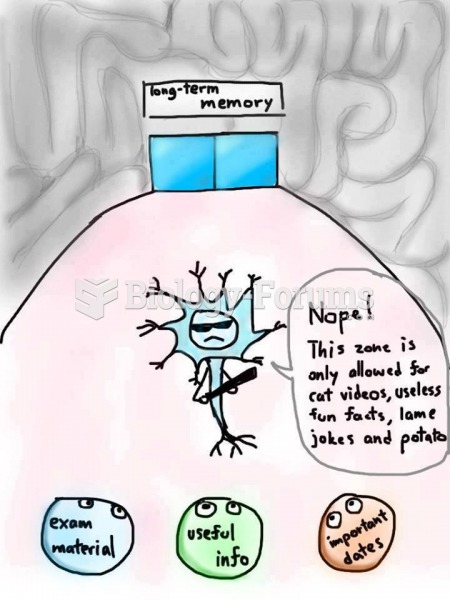|
|
|
Only one in 10 cancer deaths is caused by the primary tumor. The vast majority of cancer mortality is caused by cells breaking away from the main tumor and metastasizing to other parts of the body, such as the brain, bones, or liver.
The average person is easily confused by the terms pharmaceutics and pharmacology, thinking they are one and the same. Whereas pharmaceutics is the science of preparing and dispensing drugs (otherwise known as the science of pharmacy), pharmacology is the study of medications.
There are approximately 3 million unintended pregnancies in the United States each year.
Drying your hands with a paper towel will reduce the bacterial count on your hands by 45–60%.
The human body produces and destroys 15 million blood cells every second.







